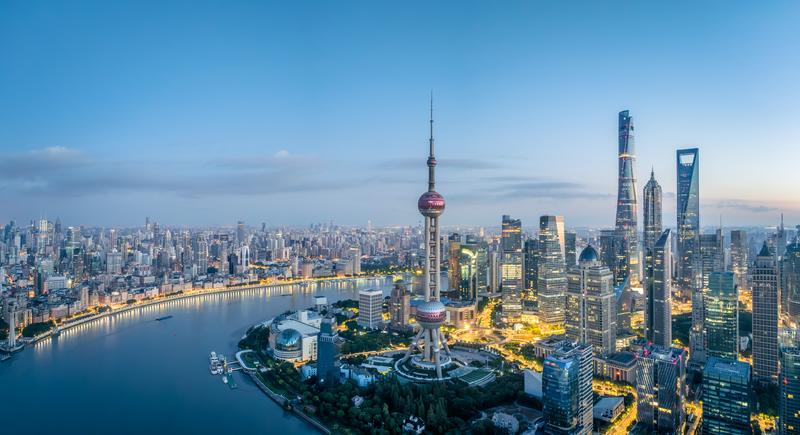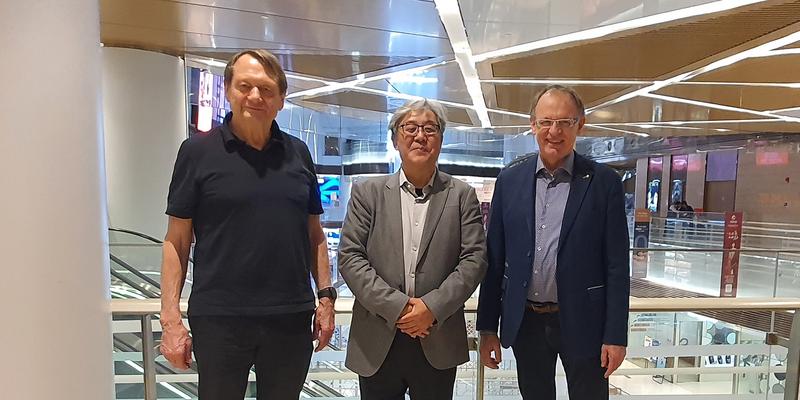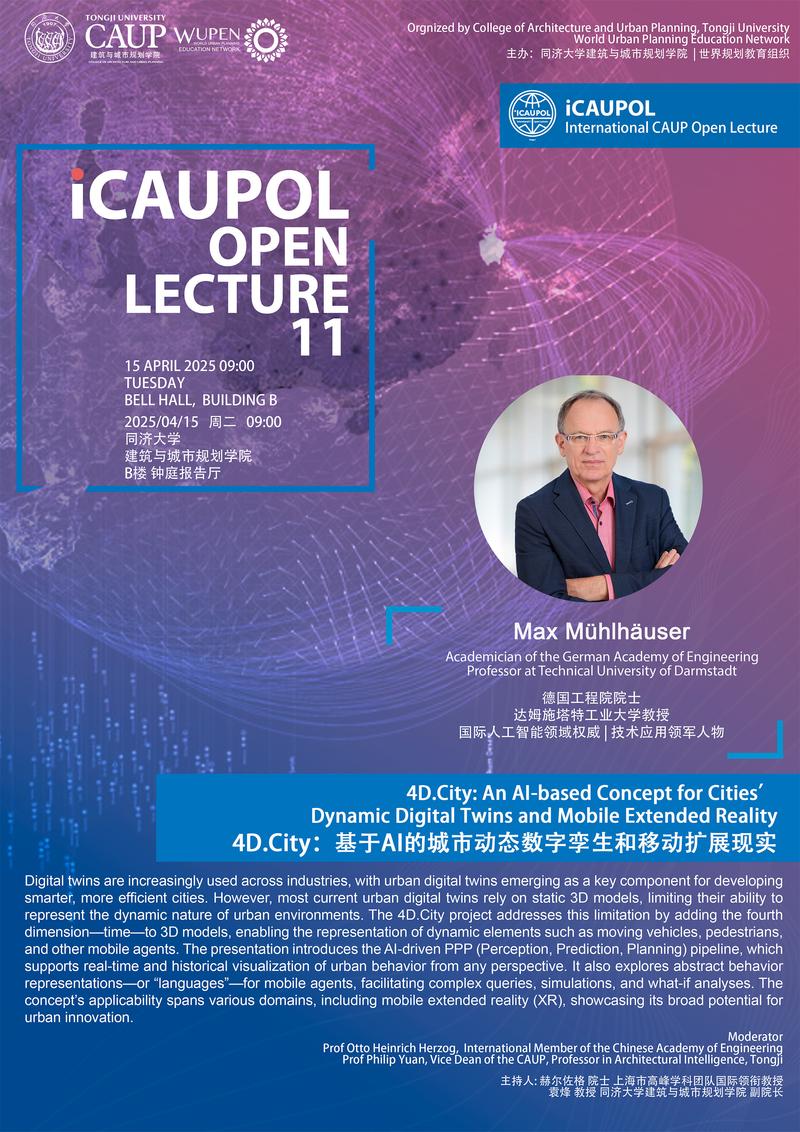Max Mühlhäuser promotes exchange with Tongji University in Shanghai
Distinguished Emeritus presented emergenCITY and 4D.City at the renowned College of Architecture and Urban Planning in Shanghai.
Distinguished Emeritus presented emergenCITY and 4D.City at the renowned College of Architecture and Urban Planning in Shanghai.

Shanghai, Beijing, Chongqing: some of the world’s largest cities are located in China. Making megacities like these not only smart but also resilient is also increasingly being discussed in the Far East. Digital technologies, including AI and digital communication, are seen as key tools for responding quickly to crises. However, their vulnerability to disruption has also long been an issue.
To learn more about digital resilience and resilient digitality, the College of Architecture and Urban Planning at Tongji University invited Max Mühlhäuser, Distinguished Emeritus at the LOEWE center emergenCITY, to Shanghai in April. In two lectures, he gave an insight into current emergenCITY research and his research area on digital twins.
“Many experts researching disaster scenarios such as fires and floods found our research results very inspiring,” says Max Mühlhäuser.
His research project “4D.City”, which is co-financed by emergenCITY, attracted particular interest. In this project, the researchers are investigating how the fourth dimension, namely time, can be integrated into the digital twin model. This primarily refers to the behavior of moving objects such as pedestrians and vehicles. The aim is to be able to make predictive decisions with the help of real-time and historical data.

The exchange has already produced initial results: Achref Doula, Post Doc at the Telecooperation Lab, will temporarily go to Tongji University to continue researching the 4D.City project with the local scientists.
Max Mühlhäuser is also continuing to strengthen emergenCITY’s international network. He is working on a joint paper on resilience with colleagues from ETH Zurich, the Singapore-ETH Center, the University of Auckland and partners in New Zealand. And together with Christian Reuter, member of the Directorate and deputy coordinator of emergenCITY, as well as researchers from Delft University of Technology, Eindhoven University of Technology and the Singapore-ETH Centre, he is organizing the next conference on resilient systems in Delft (ICRS 2026).
Max Mühlhäuser
College of Architecture and Urban Planning, Tongji University
ICRS 2026
